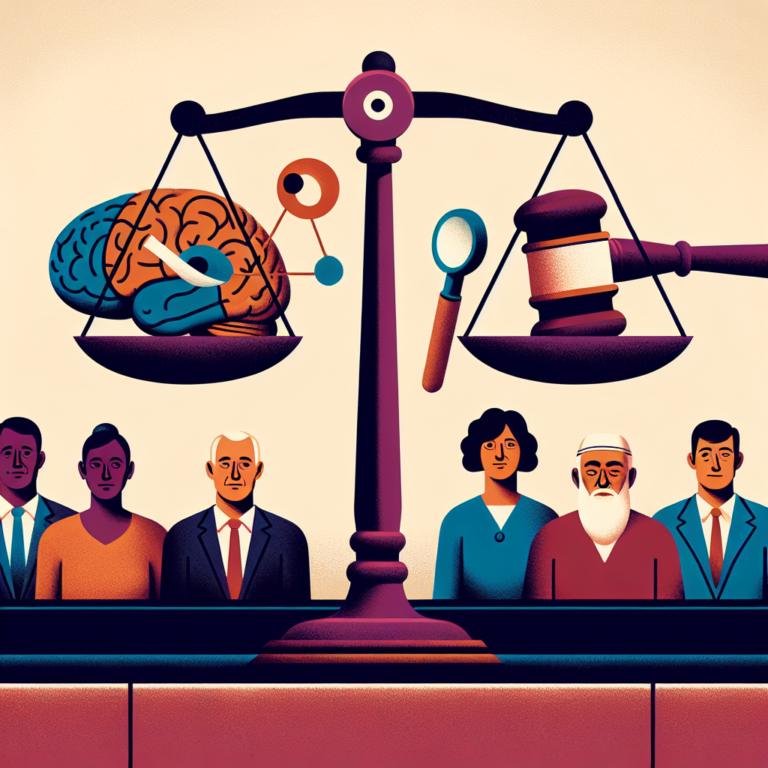
Introduction
In the face of increasing societal pressures, complex challenges, and heightened scrutiny, the landscape of modern policing is undergoing a significant transformation. Beyond the Badge: The Role of Psychological Training in Modern Policing serves as an essential focal point in this evolution. As law enforcement officers become the frontline warriors in a turbulent world, ensuring their mental well-being through psychological training is not just an option; it’s a necessity.
This article delves into the integral role psychological training plays in equipping police officers with the tools to handle stress, make informed decisions, and foster community trust. Join us on this enlightening journey to explore why understanding the human mind is as critical as the skills tied to the badge.
The Shift in Policing Paradigms
Evolving Expectations of Policing
Historically, policing was primarily viewed as a law enforcement activity centered on physical enforcement and crime prevention. However, today’s officers are expected to act as counselors, negotiators, and community liaisons. This shift in expectations highlights the need for psychological acumen.
The Psychological Toll of Policing
The profession’s inherent stressors can take a toll on officers’ mental health. Exposure to traumatic incidents, high-stakes decision-making, and the pressure to maintain public trust can lead to burnout, anxiety, and depression. These challenges prompt the essential inquiry into how psychological training can mitigate these risks.
The Foundations of Psychological Training
Understanding Psychological Resilience
Psychological resilience is the capacity to withstand and recover from stress. In police work, this resilience can be cultivated through targeted training. Research indicates that resilience can lead to improved job satisfaction and lower rates of attrition.
Core Elements of Psychological Training
Emotional Intelligence (EI): Training in emotional intelligence helps officers understand and manage their emotions while empathizing with others, which is crucial in community interactions.
Stress Management Techniques: Mindfulness, cognitive behavioral strategies, and relaxation techniques equip officers to handle stress more effectively.
- Crisis Intervention Training (CIT): CIT prepares officers to deal with individuals in mental health crises, ensuring better outcomes for all parties involved.
Case Study: The Implementation of CIT
One notable implementation of crisis intervention training took place in San Antonio, Texas. After adopting CIT, a marked reduction in the use of force in mental health-related calls was observed. Officers reported increased confidence and competence when interacting with individuals in crisis.
Table: Key Components of Psychological Training
| Component | Description | Outcome |
|---|---|---|
| Emotional Intelligence | Understanding and managing emotions | Enhanced community interactions |
| Stress Management Techniques | Tools for coping with stress | Reduced burnout and enhanced resilience |
| Crisis Intervention Training | Skills to handle mental health crises | Improved outcomes and reduced conflict |
Why Psychological Training Matters
Enhancing Decision-Making Skills
Decision-making in policing can be the difference between life and death. Training that incorporates psychological principles aids officers in remaining calm under pressure, thereby improving their decision-making abilities.
Building Community Trust
The perception of the police is closely linked to community relations. When officers are trained to communicate effectively—especially during tense situations—they foster greater trust and collaboration with the communities they serve.
Real-World Outcomes of Psychological Training
Case Study: Seattle Police Department
The Seattle Police Department faced criticism for its use of force policies. In response, they implemented extensive psychological training and community policing strategies. The results? A significant decrease in complaints and an increase in community trust. This demonstrates how Beyond the Badge: The Role of Psychological Training in Modern Policing can yield tangible benefits in community relations.
Feedback from Officers
Officers involved in psychological training programs consistently report feeling more empowered and capable of handling the stresses associated with their roles. This feedback is vital for ongoing training refinement.
Barriers to Effective Psychological Training
Stigma Surrounding Mental Health
Despite the evident need for psychological training, a pervasive stigma still exists within the law enforcement community. Many officers fear that seeking help will be perceived as a weakness, deterring them from engaging in available training programs.
Limited Resources
Financial constraints and departmental priorities can limit the scope of psychological training initiatives. Addressing these barriers is crucial for implementing comprehensive training programs.
Overcoming Challenges
Funding and Resource Allocation
Advocating for better mental health funding within law enforcement agencies can accelerate the adoption of psychological training. Community partnerships and grants can also serve to supplement departmental budgets.
Cultivating a Supportive Culture
Encouraging a culture of openness concerning mental health can help dismantle the stigma. Initiatives that promote wellness—such as peer support systems—can foster acceptance and seek help when needed.
Actionable Insights for Departments
Integrate Psychological Training into Academy Programs: Make psychological training a foundational component of police academy curricula to ensure that all recruits are adequately prepared.
Create Wellness Programs: Establish support networks that foster mental health discussions, resilience-building workshops, and stress relief activities.
- Engage in Community Dialogues: Organize community forums where officers can engage with citizens, enhancing transparency and trust.
Conclusion
Beyond the Badge: The Role of Psychological Training in Modern Policing is not merely about individual officers; it encompasses the broader implications for society. As we continue to refine policing practices, psychological training emerges as a pillar, enhancing officers’ capabilities while improving community relations.
Investing in the mental well-being of law enforcement professionals is not just a moral imperative; it is essential for fostering safer, healthier communities. The call to action is clear: commit to psychological training, and watch as the badge transforms from a symbol of authority into a beacon of trust and respect.
FAQs Section
1. Why is psychological training essential for police officers?
Psychological training is crucial as it helps officers manage stress, improve decision-making, and foster community trust, ultimately enhancing overall policing effectiveness.
2. What are the key components of psychological training for law enforcement?
Key components include emotional intelligence, stress management techniques, and crisis intervention training, all aimed at building resilience and improving interactions.
3. How can departments overcome the stigma associated with mental health?
Cultivating a supportive culture that encourages open discussions about mental health, along with creating peer support systems, can help reduce stigma within law enforcement.
4. Are there measurable outcomes from implementing psychological training in police departments?
Yes, numerous case studies, such as those from San Antonio and Seattle, show significant reductions in complaints, enhanced decision-making, and improved community relations as outcomes of psychological training.
5. What can officers do if they feel overwhelmed by their roles?
Officers should be encouraged to seek support through wellness programs, peer support networks, or mental health professionals to help manage stress and build resilience.
This exploration into Beyond the Badge: The Role of Psychological Training in Modern Policing underscores the need for mental health initiatives in law enforcement as pivotal for the safety and well-being of both officers and the communities they serve.















